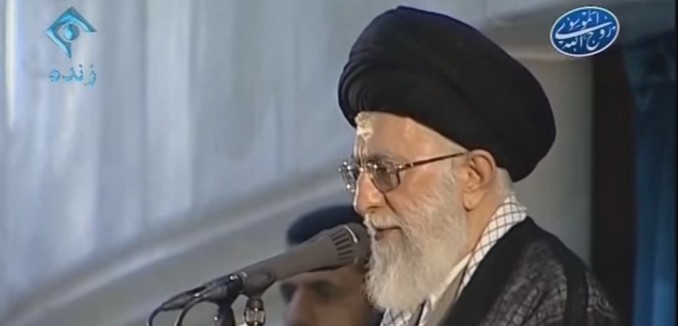Friday’s elections for Iran’s parliament and the influential Assembly of Experts will likely “uphold the largely conservative makeup” of both bodies, Mehdi Khalaji, a senior fellow at the Washington Institute for Near East Policy, wrote Thursday in The Wall Street Journal.
Like previous Iranian elections, the upcoming one will be “neither free nor fair” as all candidates have been carefully vetted for ideological purity, indicating that little change can be expected. All winners will also “remain largely dependent on military institutions, namely the Islamic Revolutionary Guard Corps (IRGC),” Khalaji explained.
Iranian President Hassan Rouhani, often described as a “moderate” or “reformer,” is similarly expected to face significant hurdles in his quest for re-election next year due to curbs on political and press liberties. Financial woes worsened by systemic corruption and unchecked state-supported organizations are also causing continued economic uncertainty that will challenge the president’s bid.
Rouhani owed his 2013 victory not only to “popular mobilization,” but also Iranian Supreme Leader Ayatollah Ali Khamenei, observed Khalaji. However, Khamenei’s support of Rouhani did not stem from the president’s proposals to reform the government, but his ability to “navigate the nuclear talks and deliver financial relief for the Islamic Republic.” Having achieved sanctions relief, Khamenei has “little reason to continue backing” Rouhani.
Furthermore, since Rouhani focused the majority of his efforts on the nuclear deal, he neglected to follow through on his promises to expand political freedoms. In fact, during his term in office so far, “military and intelligence suppression of political activists has remained robust and effective,” meaning that reformers will be weaker during his next presidential run than they were in 2013.
Consequently, candidates for next year’s elections will also have to “establish strong relations with the supreme leader and his apparatus, especially the Revolutionary Guards,” and will have to reassure them that they will not undermine their financial interests, Khalaji concluded.
Before the nuclear deal was reached, an Iranian businessman told Reuters that giving the Islamic Republic sanctions relief would “increase the IRGC’s influence over politics and the economy because it will strengthen the hardline establishment.” Lee Smith, a senior fellow at the Hudson Institute, wrote shortly after the deal was announced that sanctions relief would strengthen the IRGC’s financial hold over Iran.




